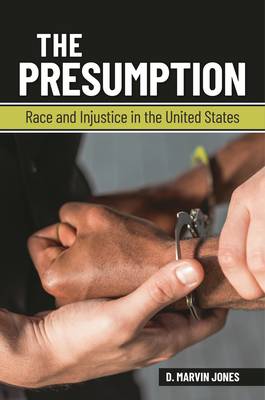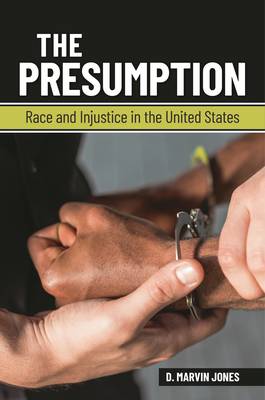
- Afhalen na 1 uur in een winkel met voorraad
- Gratis thuislevering in België vanaf € 30
- Ruim aanbod met 7 miljoen producten
- Afhalen na 1 uur in een winkel met voorraad
- Gratis thuislevering in België vanaf € 30
- Ruim aanbod met 7 miljoen producten
Zoeken
€ 203,95
+ 407 punten
Omschrijving
This powerful book on racism in the United States argues that a threatening narrative originating in slavery continues to link Black people to inferiority, dangerousness, and crime, causing them to be presumed guilty by society and U.S. legal systems.
Why are Black people stopped, arrested, and shot by police at such a high rate? Why are they portrayed in the media as gangbangers and urban thugs? D. Marvin Jones writes that the problem of race lies in the way Blackness has been inextricably knotted together in our culture with presumptions. In the era of segregation this was a presumption of inferiority, but in our era, it is primarily a presumption of dangerousness or criminality.
In chapters on slavery, urban spaces, the drug war, media portrayals, and white spaces, he shows how the presumption of guilt continues to shape the treatment of Black people in the United States. Arguing that this presumption is not simply a matter of hate on the part of individuals, but instead a social process linked to a widely shared racial ideology, The Presumption points out the continuation of racial caste in the United States as a crisis for democracy and provides a blueprint for a kind of second Reconstruction.
Why are Black people stopped, arrested, and shot by police at such a high rate? Why are they portrayed in the media as gangbangers and urban thugs? D. Marvin Jones writes that the problem of race lies in the way Blackness has been inextricably knotted together in our culture with presumptions. In the era of segregation this was a presumption of inferiority, but in our era, it is primarily a presumption of dangerousness or criminality.
In chapters on slavery, urban spaces, the drug war, media portrayals, and white spaces, he shows how the presumption of guilt continues to shape the treatment of Black people in the United States. Arguing that this presumption is not simply a matter of hate on the part of individuals, but instead a social process linked to a widely shared racial ideology, The Presumption points out the continuation of racial caste in the United States as a crisis for democracy and provides a blueprint for a kind of second Reconstruction.
Specificaties
Betrokkenen
- Auteur(s):
- Uitgeverij:
Inhoud
- Aantal bladzijden:
- 264
- Taal:
- Engels
Eigenschappen
- Productcode (EAN):
- 9781440867712
- Verschijningsdatum:
- 30/05/2024
- Uitvoering:
- Hardcover
- Formaat:
- Genaaid
- Afmetingen:
- 156 mm x 234 mm
- Gewicht:
- 544 g

Alleen bij Standaard Boekhandel
+ 407 punten op je klantenkaart van Standaard Boekhandel
Beoordelingen
We publiceren alleen reviews die voldoen aan de voorwaarden voor reviews. Bekijk onze voorwaarden voor reviews.











